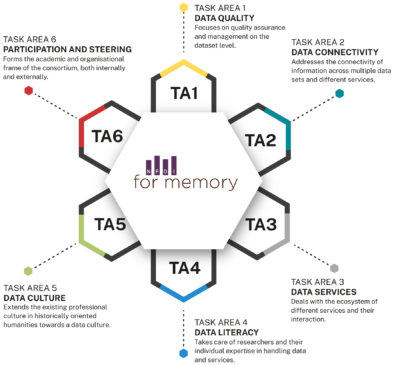Das Deutsche Historische Institut (DHI) in Rom
sucht für den Forschungsbereich Digital Humanities zum 1. Januar 2025 für einen befristeten Zeitraum von drei Jahren
eine*n wissenschaftliche*n Mitarbeiter*in (w/m/d) mit dem Schwerpunkt Softwareentwicklung
Das DHI Rom ist eine Einrichtung der in Bonn ansässigen Max Weber Stiftung – Deutsche Geisteswissenschaftliche Institute im Ausland. Es widmet sich der epochenübergreifenden, interdisziplinären Erforschung der italienischen und deutschen Geschichte und Musikgeschichte in ihren europäischen und globalen Bezügen vom Mittelalter bis heute.
Das innerhalb des e-research-Programms von der DFG zunächst für 3 Jahre geförderte Forschungsprojekt „Forschungsdateninfrastruktur Historische Quellen (HisQu)“ zielt darauf ab, neue Methoden und eine innovative digitale Infrastruktur zur semantischen Erschließung historischer Quellen zu entwickeln. In Zusammenarbeit mit renommierten Partnerinstitutionen wird dafür eine Plattform aufgebaut, die es ermöglicht, historische Forschungsprozesse digital gestützt, nachvollziehbar und reproduzierbar zu gestalten.
Im Rahmen dieses Vorhabens soll die bestehende Dateninfrastruktur des „Repertorium Germanicum“ (RG) weiterentwickelt und durch die in HisQu entstehenden Services ergänzt werden.
[...]
Quelle: https://dhd-blog.org/?p=21597
